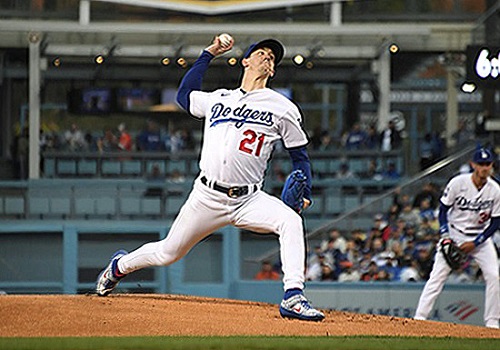On Friday afternoon, the Dodgers announced that they had tendered contracts to all 12 of their arbitration-eligible players:
- RHP Yency Almonte
- RHP Walker Buehler
- RHP J.P. Feyereisen
- RHP Brusdar Graterol
- RHP Dustin May
- RHP Evan Phillips
- LHP Caleb Ferguson
- LHP Victor González
- LHP Alex Vesia
- LHP Ryan Yarbrough
- INF Gavin Lux
- C Will Smith
For those unfamiliar with this whole tender/non-tender thing, here is the definition from the MLB.com glossary:
When a club “non-tenders a player, it declines to give that player a contract for the upcoming season, thereby immediately making him a free agent. Players on the 40-man roster with fewer than six years of Major League service time must be tendered contract extensions each offseason by a set deadline – typically a date in early December – or non-tender and released to the free-agent pool.
In many Instances, a club will non-tender a player because it feels the raise he will receive in arbitration would be greater than his on-field value. In other cases, a club will non-tender a player simply to clear a spot on the 40-man roster – even if that player isn’t due much more than the league minimum the following season.
Of particular note about the aforementioned 12 is Walker Buehler, who last pitch for the Dodgers on June 10 of 2022. As Dodgers fans painfully know (and Buehler painfully experienced), the extremely popular (now) 29-year-old Lexington, KY native and Dodgers first-round draft pick in 2015 out of Vanderbilt University had his second career Tommy John surgery this past August.
“I am disappointed that I will not be able to help this team go after a title in the 2023 postseason, but I look forward to returning fully healthy in 2024 and bringing another World Series to L.A,” Buehler told reporters in early September.

All 12 of these Dodgers players have three or more years of MLB service time but less than six years, which made them eligible for salary arbitration for the 2024 season. That said, the 12 are still not officially under contract for next season and must still negotiate a new contract with Friedman. Should they not agree on a salary by the January 12 deadline, the team and player(s) will exchange salary figures for the upcoming season at an arbitration hearing, which begin on January 29 and run through through February 16. After hearing arguments from both sides, the three-person arbitration panel will select the figure of either the player or the team (but not one in between) as the player’s salary for the upcoming season.
Although teams can continue negotiating contract terms with their players beyond the arbitration deadline, Friedman has a track record of getting things settled early each off-season.
Play Ball!
* * * * * *




 November 18th, 2023 at 12:00 pm
November 18th, 2023 at 12:00 pm  by Ron Cervenka
by Ron Cervenka  Posted in
Posted in 
